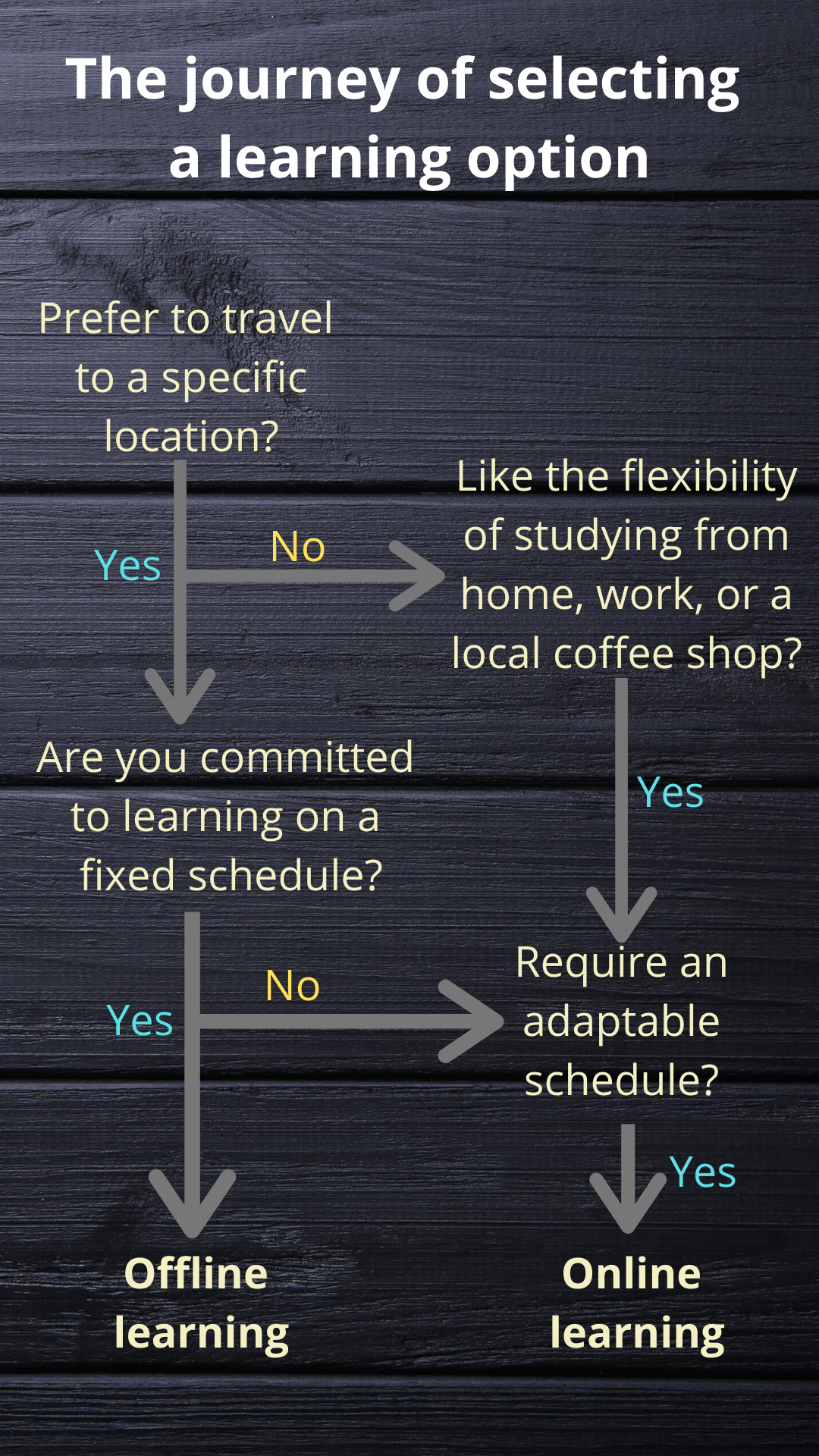So, You’ve Decided to Upskill? Now What?
Congratulations on looking out for yourself. Did you Google already? How did that go? Bet there were thousands of videos, online courses, podcasts, and even books that popped up.

If you do decide to “open a new tab” on everything, you are then faced with many data points to consider: prices, duration, certifications, free courses, different formats. Somehow having a bevy of learning options leaves you even more confused!
What’s right for you?

We asked ourselves the same question and came up with Lore’s personalization feature that uses machine learning and artificial intelligence (AI) algorithms to suggest learning options, curated just for you.
All we ask is that you answer a few questions to help us cater to your preferences and voila! Online courses, executive education, classroom learning, video tutorials; all neatly organized in an easy to choose, view and compare format.
You could select based on a particular budget, the skills you wish to gain, and the availability of a certification or the type of affiliation the option offers. We just saved you a truckload of research time. You’re welcome!
Factors to consider while selecting a learning option
1. Your objective
You may have chosen a new career path that needs you to build new skills. Or, are you trying to work on current skills to take them to the next level? Or, maybe you want to improve your job prospects and need to add credibility to your resume through certified courses.
Articulating your objective makes it easier to select a learning option. If you’ve chosen a new career path or are seeking advanced level training, then you might seek out a certified course or one that is affiliated with a renowned university. If you simply wish to learn a skill related to a newly formed hobby, you could stick to free video tutorials.
2. Exploring your options
Once you’ve determined your objective, you can begin researching different learning options. Quite often there will be a number of courses from different institutions that are similar in content.
You might have to read up on all the modules in downloaded brochures or visit every institute to figure out the best one for you. Once you’ve gathered all the information, you can compare them, one course at a time.
Or, you can simply log onto Lore to customize learning options that meet your objectives. This way, you eliminate the process of extensive, haphazard research.

3. The overall cost
Once you’ve narrowed down the list, your next step is to check your budget. Make sure to factor in extra costs involved in studying abroad (flights and visas) or in taking an online course (consistent internet access) or in studying close to home (commutes and physical books). Another factor that can affect your budget is the type of learning option you select. For example, an offline course can sometimes cost more than an online course because seats are limited.
4. Industry focus
The learning option you select should offer the latest knowledge and skills related to the industry in which you work or want to work. You could also be looking for extremely specific, advanced level courses in a narrow topic. In that case, your search may be short but choosing the right option may take some time.
Narrowing in on a learning option that’s right for you can be a tedious affair. Since learning never ends, seeking a little help can make the process more enjoyable and effective. At the end of it all, what matters is what you’ve learned and how well you put that knowledge to work in your life.
Happy Learning!